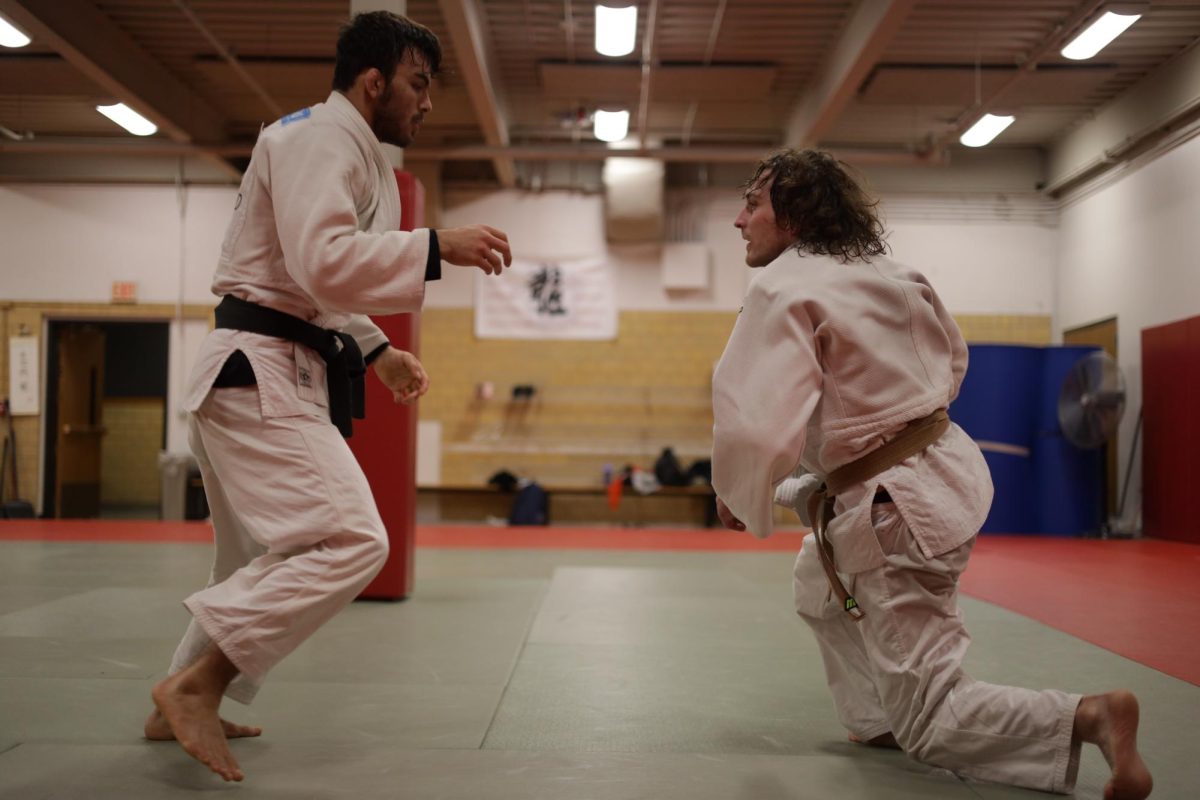IRHA goes unnoticed by many constituents
December 13, 2002
Of the 8,701 residence hall students at Iowa State, many don’t know who their representatives are, or what they do.
Inter-Residence Hall Association President Keith Twombley said the majority of students don’t know who is behind the decisions made at the student government level.
Last year, IRHA worked on getting condoms in the C-stores, preventing the name Jischke from gracing the Honors building and getting fewer restrictions in the residence halls during Veishea.
And though it has been fairly quiet this year, IRHA is still around, and still working to improve life in the residence halls.
Keith Twombley, IRHA president, said students are affected by the organization even though they aren’t sure who or what IRHA is.
“Pretty much everyone that lives on campus has come into contact with something IRHA has done at some time or another,” he said.
IRHA is made up of 24 elected residence hall students who represent the residents of Union Drive Association, Towers Residence Association and Richardson Court Association.
IRHA uses student fees and fund raising to operate. They are responsible for funding student events and sending students to leadership conferences.
They also act as the voice of students to the Department of Residence.
Dave Breutzmann, president of TRA and junior in computer science, said it is not uncommon for the average student to be unaware of what IRHA does.
“I had no idea [how IRHA functioned] until I got really involved in my sophomore year,” he said. “Anyone who wants to know can find out very, very easily.”
Twombley, senior in computer science, said one of IRHA’s main goals is letting students know what they are all about.
“It’s sad to say that even students that live in the residence halls really don’t have much of a concept of what we do on a day-to-day basis,” he said.
“Sure, some of them know what we do in general, but they don’t know what we do exactly, and that’s a major stumbling block.”
Nick Leitheiser, Richardson Court Association At-Large, said the way most students learn about IRHA’s activities is by attending house meetings.
“Unfortunately, if students don’t attend house meetings, they don’t get the information,” he said. “I think most houses, in my experience, are lucky if they get half of their residents at house meetings.”
Twombley said IRHA has used e-mails to inform students in the past, but he prefers not to bother students with constant information about the details of IRHA.
“[Students] don’t want to receive an e-mail from me every couple of days,” he said. “They really don’t care. They want to know about the issues.”
Leitheiser, junior in political science, said the best way for IRHA to get input from students is from simply talking to them.
If students have concerns with an aspect of life in the residence halls, Leitheiser recommends they speak first with their hall president, then with the association government.
One of IRHA’s main duties is to act as a voice for students, Twombley said.
“Our representation of the students just gives them a voice and it’s phenomenal the things we can get accomplished just by talking to people in the university,” he said.
More recently, IRHA has been working with the Department of Residence to get certain residence hall doors to remain unlocked during the day after the 24-hour locking policy goes into effect in January, Twombley said.
IRHA’s decision to work with the DOR on the policy rather than to oppose them was the best way to deal with the situation. IRHA’s decision will have a lasting impact on residence hall life, Breutzmann said.
Leitheiser said IRHA recently formed a committee to examine Dining Service meal plan structures in order to find out what works best for students.
“It’s really a good time to do that because the university is planning on restructuring the meal plan,” he said.
Much of IRHA’s work goes on behind the scenes, and therefore goes unnoticed. The organization is always receptive to student suggestions, Twombley said.
“Everyone that lives in the residence halls benefits [from IRHA’s activities] and if somebody doesn’t think they benefit, then I expect a phone call, an e-mail, or an instant message to let me know what I can do,” he said.






